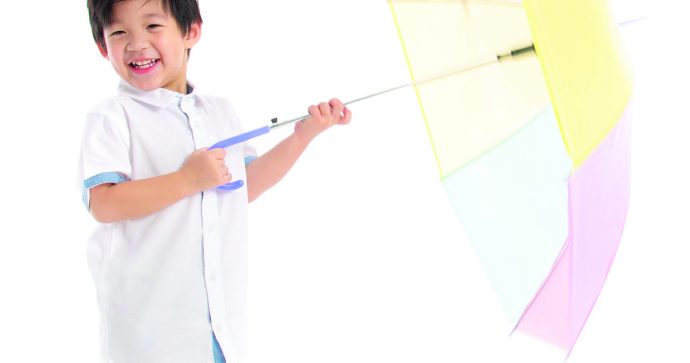When the rainy season approaches, the unceasing downpour can be a nuisance. Imagine the traffic jams and floods – going anywhere will be a hassle. Even worse, a myriad of diseases also tends to spread during this season.
The monsoon or rainy season in Malaysia typically lasts from October to February in the East Coast, Sabah and Sarawak; and from July to August in the West Coast. With the rain, comes fluctuation in temperatures, as well as an increase in humidity. More puddles and stagnant water will form, especially with ineffective drainage systems, possibly leading to flash flooding. These result in increasing incidences of diseases such as waterborne diseases, influenza, leptospirosis, and dengue fever. Children are more susceptible to these diseases as their immune system is still developing.
Feeling under the weather?
Some diseases are more prevalent during the rainy and flood season.
- Waterborne diseases (cholera, typhoid fever, etc.) are caused by infections transmitted through contact or consumption of contaminated water or food. Cholera, which is caused by Vibrio cholerae, comes with diarrhoea and vomiting; while typhoid fever, caused by Salmonella typhi or Salmonella paratyphi, has symptoms such as high fever, headache and poor appetite.
- Influenza is a viral infection that attacks the respiratory system. It is different from a typical cold and manifests suddenly. Symptoms include fever, chills, cough, headache, muscle aches and fatigue. Most people will recover in a few days, but some may develop severe complications such as pneumonia or sepsis, which can be fatal.
- Leptospirosis is a bacterial infection caused by Leptospira. Humans get infected through contact with urine of infected animals (such as rodents, dogs) or contact with contaminated water, soil or food. Symptoms include high fever, chills, headache, muscle ache, jaundice, vomiting and diarrhoea. Without proper treatment, it can lead to kidney failure, meningitis, and even death.
- Dengue fever is a viral infection caused by the virus Flaviviridae. The virus is transmitted through the bite of infected Aedes aegypti female mosquitoes. Dengue fever also exhibits similar symptoms to influenza. The illness may progress to dengue haemorrhagic fever, with more severe symptoms such as severe abdominal pain, convulsions and uncontrolled bleeding. At this stage, it can be fatal.
Take shelter from diseases
Bad weather may dampen your day, but do not let it affect your family’s health.
- Stay dry and clean. Always carry an umbrella or raincoat when going out. Avoid getting splashed with dirty water. Explain to children that flood water is NOT a swimming pool! All kinds of dirt and germs are contained in floodwater (it is dangerous when we cannot see the ground while walking as there may be potholes which children can fall into). Good hygiene is important – wash hands thoroughly after using the toilet, as well as before and after preparing and eating food.
- Keep a clean home. Maintain the general cleanliness of your home. Disinfect your home regularly, especially the kitchen, dining table and bathrooms. Prevent pests (like rats, cockroaches or flies) using traps or safe pesticide as they may seek refuge in high and dry areas, like in our homes.
- Be more cautious with food and drink. Eat only well-cooked food. Wash fresh fruits and veggies with clean running water. Store food properly to keep pests away. Street foods are more exposed to contamination, so it is best to avoid them during the rainy season. Stay hydrated with clean and boiled drinking water.
- No mosquitoes allowed! Apply mosquito repellent on exposed skin, especially when going outdoors. Use mosquito nets or screens to keep mosquitoes away. Do not let mosquitoes breed – cover water containers, replace water in flower vases, clean gutters from leaves or trash to prevent rainwater from collecting, and dispose all unused cans, jars, bottles, tyres that can collect water.
Protection against infections
For added protection against infections during the monsoon season, vaccines are available for some of these diseases. Annual seasonal influenza vaccines are available in two types: trivalent or quadrivalent. Haemophilus influenzae type B or Hib vaccine is also provided under the National Immunisation Programme. Vaccines for cholera and typhoid fever are also available and recommended when travelling to countries where these diseases are common. While you cannot make rain go away, you can shield yourself and the family from illnesses by taking the right precautions.
An educational contribution by Malaysian Paediatric Association.






Comments